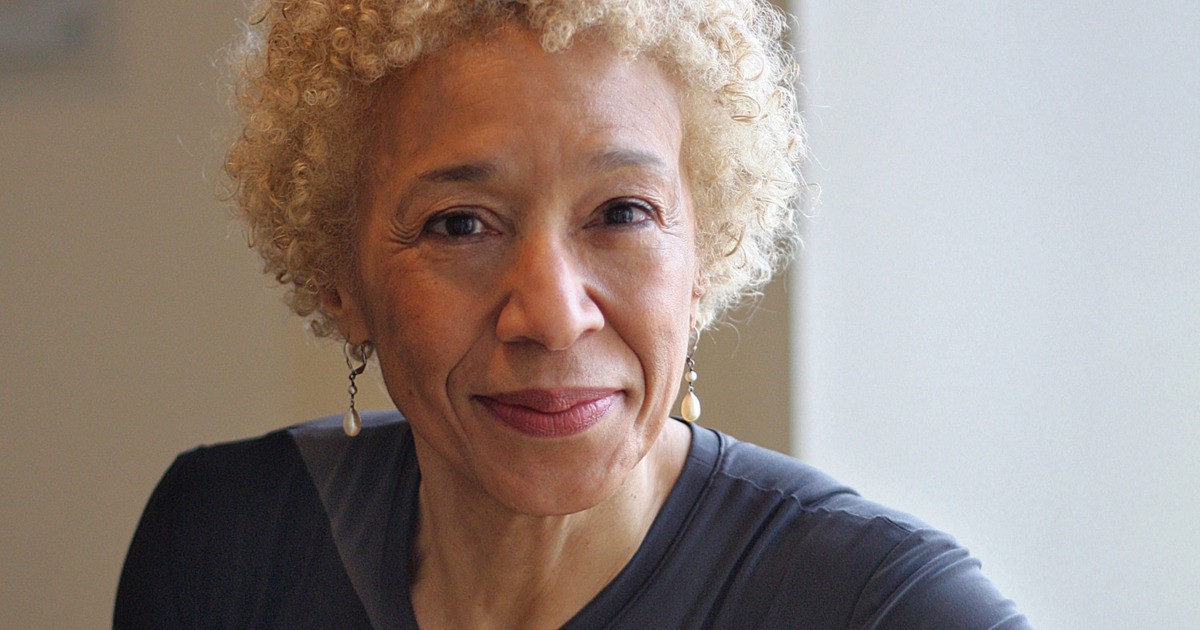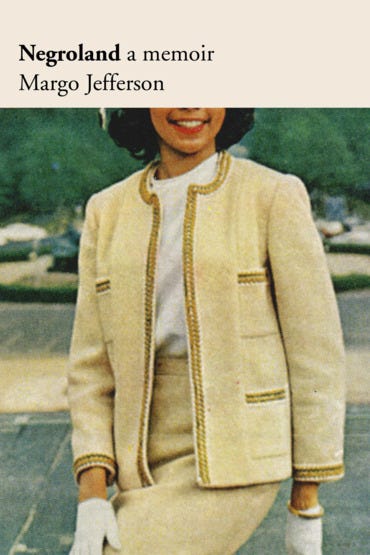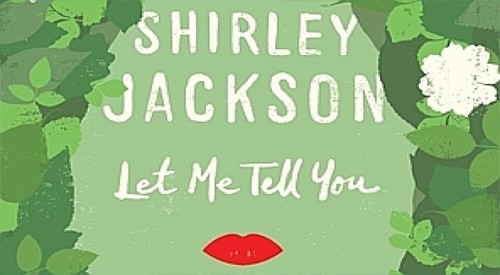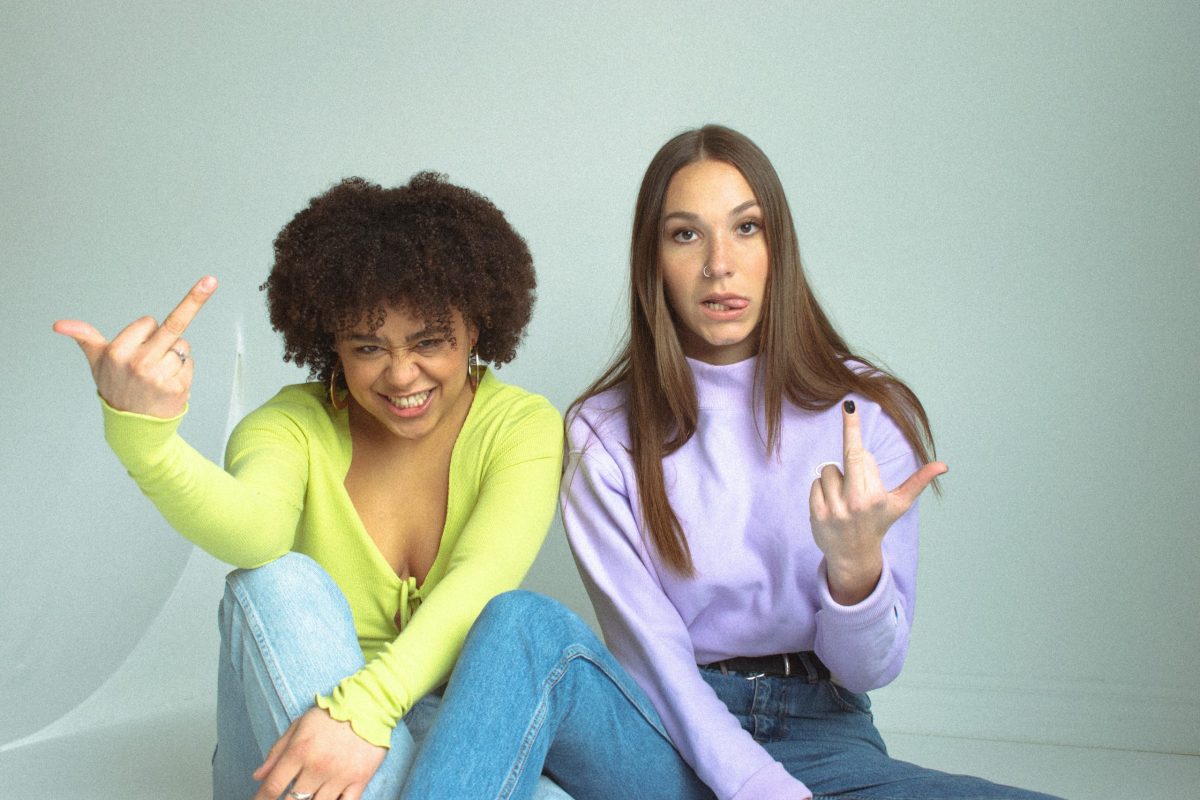Interviews
Context, Cadence, Subtext: An Interview With Margo Jefferson, Author Of Negroland


Margo Jefferson is most known for her writing on others. Her ability to unpick the nuances of performed art and theater, to empathize with and contextualize near untouchable pop culture icons like Michael Jackson and Beyoncé, and to engage in critical dialogs that account for present context while demonstrating a thorough grasp of the undertows of history, speak to her sharp intelligence, voracious mind, and finely calibrated writing.
In Negroland, she makes what is perhaps the most difficult move for a critic — she turns the pen on herself, to unpack her own life, its identities, its luxuries and deprivations, its nuanced challenges, and the way it has been guided by history, traditions, culture and inner drive. The daring of her experimentation with form, the range of her sources, and the beauty of her writing make for a book that moves from engrossing to heartrending to regenerative.
Jefferson and I talked in August about titles, audience, style, race, and gender, after what she described as the “cataclysmic histories” of this American summer.
Melody Nixon: While reading Negroland in different parts of NYC (midtown cafes, Fort Greene Park, and the A/C line subways) I’ve found its title, visible as I read, has elicited a range of surprised remarks and questions. You have an excellent section at the start of the book outlining why you chose the term “Negroland,” what the term Negro signifies, its power and associations, and — a comment I love — its moment in history as it gives way to new nomenclatures. When choosing this title, what considerations did you make about how it would be received: the prejudices, familiarity, ‘horrors, and glories’ (to paraphrase your own description) that it could conjure?
Margo Jefferson: I thought about it a lot! Tested it on, talked it through with all sorts of people, then (in my head) created a map of their responses. I was definitely worried about the turnoff factor — suspicion that it was meant to signal political conservatism; disapproval of giving the word any here-and-now credibility whatever my intentions; pure “huh? What’s this supposed to mean?” confusion. And I’ve seen faces fall, or go blank!
“Negroland” has been my private word for this particular social/historical world for a long time. The word “land” is crucial. A land is a literal and an imagined space. It’s contested and mythologized, pressured by neighboring spaces, always redefining its dependence and independence, revising its history and its legends. You live in it, but even when you leave, it lives in you. Negroland was part of and apart from both white and black (“Negro” in those days) America. Those simultaneous meanings, (after all, “Negro” means “black” in Spanish and Portuguese), the pressures of nomenclature and place: as a writer I wanted to claim and explore them linguistically, structurally, imaginatively.
Nixon: Kiese Laymon remarked in Vol.1 Brooklyn, “If you changed the listeners, you change the art.” To what extent did considerations of audience come into this book? Are you writing to a new audience?
Jefferson: I like those words a lot. Being a critic, and a black critic and a woman critic, writing for lots of publications, I’ve always been acutely-to-obsessively aware of audience expectations, hopes, reservations and projections — onto the subject I’m writing about, and onto me, as the critic, as the black critic, as the woman critic. It’s sharpened my sense of cultural complexity, which is good. But it’s hampered me too. Wanting to shake free of that consciousness as a writer, to be more daring in form and content — has everything to do with this book. (And when I wrote the Michael Jackson book I was fascinated by how in thrall he was to his multiple audiences & legacies. So desperate to escape, defy, reward and appease them…)
The more interested I’ve become in this form we call “creative nonfiction” the more chances I’ve wanted to take as a writer. I want to get at fresh ways to combine fact, imagination, memory. A new audience of listeners? An audience of people willing to listen in new ways? I want both!
Nixon: At the start of the book you note: “all readers are strangers. Right now I’m overwhelmed by trying to calculate, imagine, what these readers might expect of me.” How about your actual art creation, your writing process — which mixes first person rumination with third person (auto)biography, memory with cultural reportage, and literature review with thoroughly researched history — how was it affected by, and how did it interact with, your desire for a new audience?
And whatever risks you take, whatever mistakes you’re willing to make, that critical authority is still a safety zone.
Jefferson: In criticism, your readers come to know you, want to be with you, because of the relations you create with art and culture. And whatever risks you take, whatever mistakes you’re willing to make, that critical authority is still a safety zone. At the very least a fourth wall. So that admission of mine about being so vulnerable to my readers’ judgments and demands was my way of breaking the fourth wall right away. Getting past my sanctioned persona as a writer would, I hoped, stir readers to question theirs and bring them to the book. I wanted to — what’s the best verb: spur, induce, incite — the audience to find corresponding or oppositional or conflicted spaces in themselves, their worlds. I had to represent it in every way I could, from confession and obsession to history, literature, clothes, voices, gestures. A theater where class, race and gender were like characters. Each with its weapons, its needs, its devices. Which could foreground the reader’s own.
Nixon: One of the ‘chances you take’ with this memoir — among the playing with form and the mixture of styles — is narration in the third person. I was reminded of Salmon Rushdie’s third person autobiography, Joseph Anton: A Memoir, when reading your third person voice. He used that pronoun to recreate the sense of alienation he felt while in hiding, following the fatwa issued against him by Ayatollah Khomeni. What are your reasons for summoning the third person singular?
Jefferson: At first I did it on impulse. Take the shift to third person in the high school section. At first it helped me escape being paralyzed by the shame of those memories. The omniscient narrator voice managed a dialogue with this struggling adolescent self and restrained me, as a writer, from easy contempt or a craven, “Reader, pity me” tone. Then, as I revised, I saw that the third person did other work. It dramatized the performance demands and rituals of Negroland; continuous judgment — the critical eye constantly turned on the performance. You’re so right about the alienation that it recreates… And also the drive to calculate my — the narrator’s — position in the world, to find strategies for behaving and reacting in every situation.
Nixon: The switch back to first person, to “I” from “she,” reinserts your presence as a writer, and reminds the reader you are in control: that this isn’t some confessional splurging, or self-serving catharsis, but rather a very well crafted series of moments showing us exactly what you want us to see. The “I” moments are also the most honest and heartrending. This is your first autobiography. How challenging was it for you to completely utilize this “I”, and reveal your inner self?
There’s no one way to reveal an inner self; context, cadence, subtext mean everything.
Jefferson: At times it felt impossible. Often, in the past, I’d stop myself with a dead-end mantra that went: “I’ve had to live it. Why do I have to write it too?” It was exhilarating to realize I wanted to work against a forthright chronology. I knew it would make me too cautious and decorous. Feeling freer to choose what intrigued or consumed this narrator — me, moving among styles and genres kept me excited. And gave me concrete things to struggle with, like technique! As a critic, I’d always been really careful about when and how to use “I.” (When I first entered journalism, it wasn’t allowed in mainstream publications). To have access to this coveted power pronoun scared the bejesus out of me in the beginning. Then it got pretty thrilling. The critic-me had been taught to honor the uses and the power of other pronouns, so I tried to bring those powers to bear on the new (for me) powers of “I.” Pronoun shifts have so many uses: structural; tonal; rhythmic. There’s no one way to reveal an inner self; context, cadence, subtext mean everything. An autobiographical “I” has to have multiple meanings in a book that’s both a cultural and a personal memoir.
Nixon: The book’s materials include personal correspondences, which show local comings and goings, divorces, engagements, family matters, and pop culture dissections. Was the choice to include these letters a conscious move to foreground the private and domestic, to include gossip — the unique space where women could assert their voices and opinions — as a source of equal weight vis-à-vis the more traditionally male realm of literature reviews and historical documentation?
Women’s lives always foreground how the public and private worlds mesh and collide, don’t they?
Jefferson: Absolutely. I placed that 1944 letter from Irma, my mother to Deborah, her friend near the beginning of the book, right after a section of quite formalized history. So hers is the first voice from Negroland that you hear unmediated. Letters are so palpable — on the page they’re fleshly. And the writer is untouched by our reactions or expectations. So here she is, this spirited young woman, produced by all that history; in her own here and now, enjoying herself and her confident moves from local gossip to movie talk to marriage talk and race talk. There are also the depression missives exchanged by me and friends, the short conversations and declarations passed on from mothers to daughters, and the short “relativity tales” from the ’70s to my present. All of them revolve around women talking; at dinner, at parties, on the phone, in notes and journals. I wanted to show women recording their thoughts and performing, for themselves, each other and the world. I wanted to show pleasure they took in it. Women’s lives always foreground how the public and private worlds mesh and collide, don’t they? And this book is driven by the manners, styles, and legacies of its women.
Nixon: You mentioned “Negroland” elicited confusion when you tested the word out on people. A man on the A Train who saw me reading the book laughed and said, “Negroland! What’s that? What are you doing reading about that?!”. I felt acutely aware of my race in that moment, and my unnecessarily defensive reaction to explain that this book wasn’t mocking or ridiculing. In short, my race (un)consciousness, insecurities, discomfort, and desire to engage, all came to the surface in that moment. We found our way to a good, long conversation. This brought to mind the potential of literature, and even something as seemingly straightforward as a title, to spark conversation and debate. What are your hopes for, and how do you envision, this book being received?
Jefferson: As soon as I read this, Melody, I started imagining what scenarios might unfold if I took the book on the subway. (I haven’t yet). I’m sure whites wouldn’t risk asking me on the subway; I’m thinking about the reactions I’d get from different blacks, how differences between us, race-kinship notwithstanding, would affect our exchange. That I decided to stay with that title says something about my hopes for the book. What? That it stirs a desire for more complexity not less, as we — as multiple I’s — live out (live with, live down) the demands and consequences of race, gender and class in America. And I want gender, class and race to register as visceral and specific, not abstract or dutiful. They take so many forms, they’re as mutable as they are inescapable. They deserve all the scrupulous attention we give individual psyches. And I want readers to feel that in their own lives, not just in mine. I want readers to think and feel not one but many things.
Nixon: What is the role of literature in a time (particularly given such renewed violence, mass shootings, mass denial of racism, and police brutality against Black people) when conversations on race in America are so needed?
But aren’t we writers trying to show what goes unseen in everyday life, and tell what gets suppressed?
Jefferson: What roles can literature best play at times like these? Literature makes worlds from words, and when readers enter those worlds their internal conversations can start changing. Because, for a time, they have to find new words: play an unexpected role in an unfamiliar world. Real literature makes that newness compelling. Even when you resist, it marks you. Talking about the role of literature can make one veer toward too-grand idealism. But aren’t we writers trying to show what goes unseen in everyday life, and tell what gets suppressed? Give it coherence and urgency, and beauty? (One of my favorite Thelonious Monk compositions is “Ugly Beauty”!) We all know that’s no guarantee of the political change we crave. Still, when literature does its aesthetic and ethical work, it makes those changes feel possible, bearable; even desirable and revelatory.









